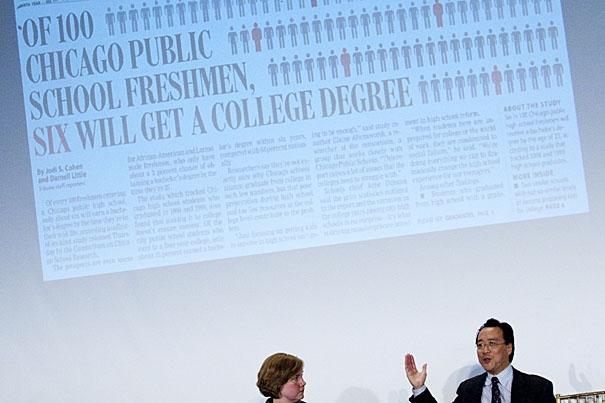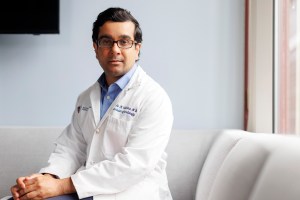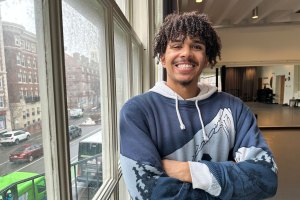Arts & Culture
-
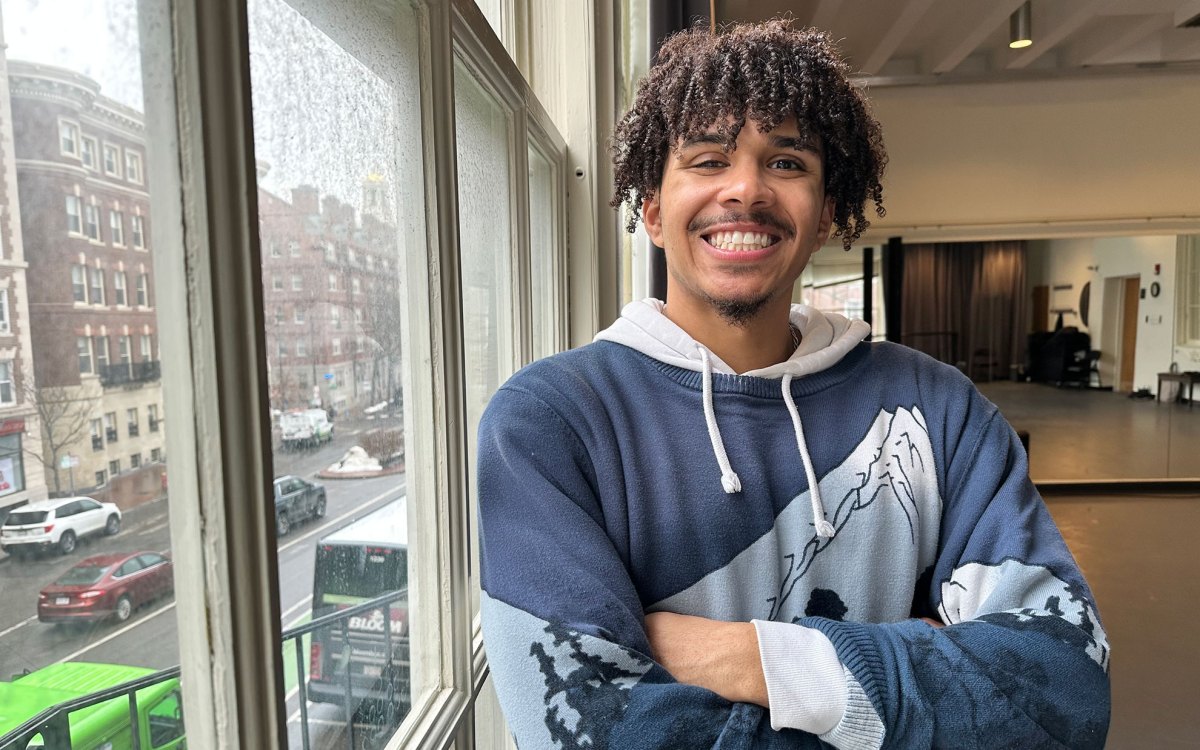
Retelling Frederick Douglass’ story, with a soundtrack
Senior composes musical about abolitionist’s early life
-
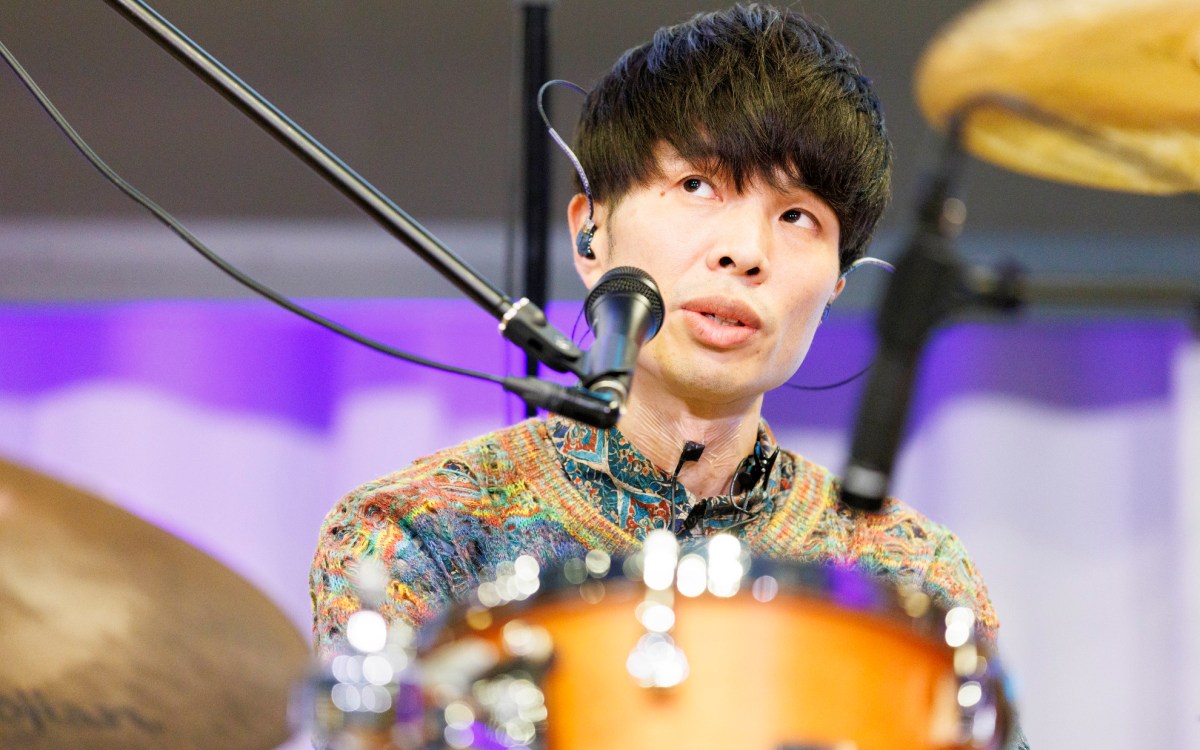
‘The sound stopped suddenly’
After rare condition robbed drummer of ability to play music, science led him back
-

Moved by what’s missing in Homer’s ‘Harrow’
Curator launches series steeped in U.S. history
-

Tina Fey’s keys to a good joke: Snark, confidence, surprise
Comedian keeps Harvard crowd laughing with longtime co-writer Robert Carlock ’95
-

How Bad Bunny rocketed to global stardom
Music scholar charts ‘remarkable’ rise that transcended language barriers and cultural stigma
-

‘A whole new experience of Kubrick’
As HFA screens full works, professor dissects why films like ‘The Shining’ and ‘2001’ still provoke audiences today
-
Indian College found?
Students digging in Harvard Yard may have found remnant evidence of Indian College, one of Harvard’s earliest buildings.
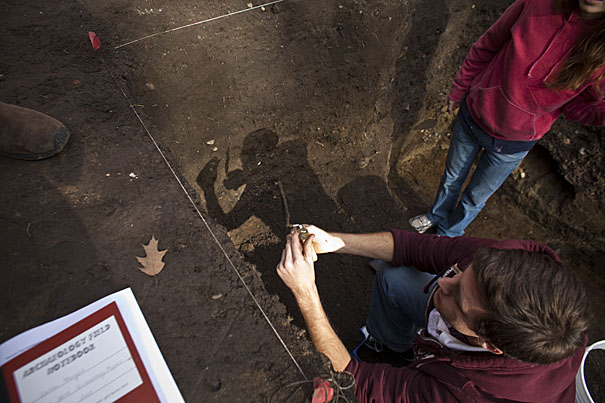
-
Revelations on Revelation
Biblical scholar Elaine Pagels visits Radcliffe, presenting a “mad dash” of fresh thinking on the New Testament’s Book of Revelation.
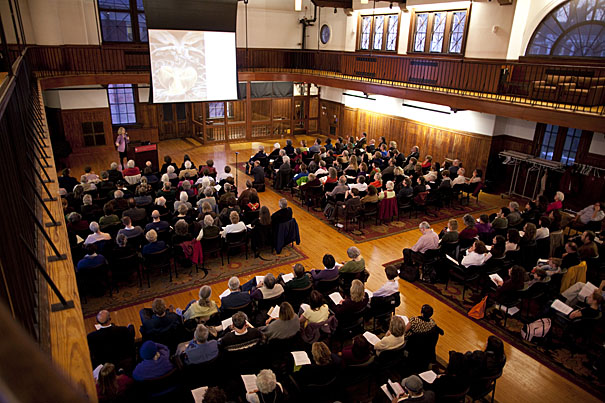
-
Learning Lessons: Medicine, Economics, and Public Policy
With more than 50 years of experience in the economics and policy worlds, Fein dishes the lessons he’s learned on government, decision making, and more, attempting to breathe new life into our nation’s welfare.
-
The Third Chapter: Passion, Risk, and Adventure in the 25 Years After 50
Sociologist Lawrence-Lightfoot’s inspiring book says that ages 50-75 are prime time for adventure. Forty interviews with people living in their “third chapter” show how fulfilling life can be then.
-
Enchanted Hunters: The Power of Stories in Childhood
Tatar plumbs the lore and enchantment of children’s stories, revealing their power to ensnare imaginations, and highlights the magic of reading and what children take from it.
-
Women on the move
A new Schlesinger Library exhibit, “To Know the Whole World,” introduces an interactive Web site on women’s travel writing.
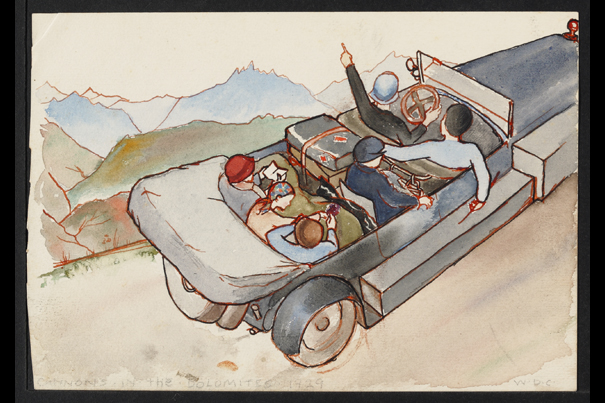
-
In defense of books
Harvard Library director pens book that in itself is an ode to books.
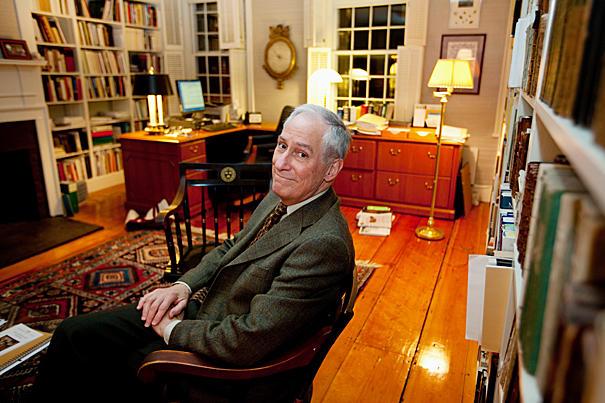
-
Learning’s online fate
Panel says higher education is freshened, expanded, and challenged in a networked age.
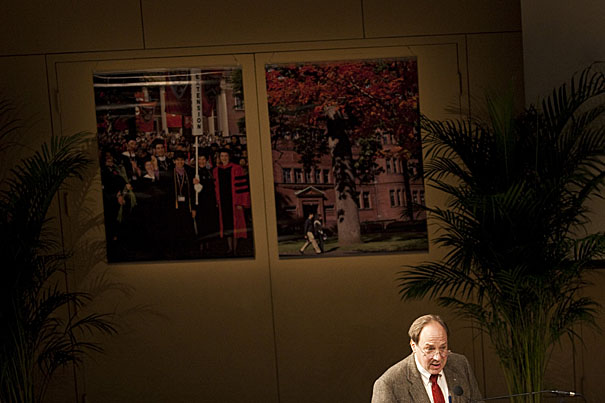
-
Blowing his own horn
Musician Fred Ho received the Harvard Arts Medal and performed the premiere of his piece, “Take the Zen Train,” with the Harvard Jazz Bands.
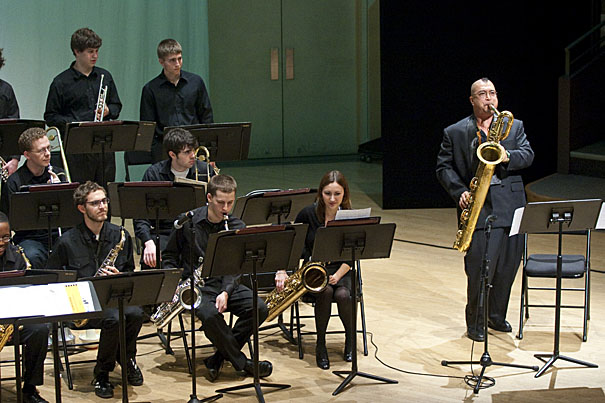
-
Addiction: A Disorder of Choice
A sobering book, sure to draw ire: This psychologist posits that addiction is voluntary.By analyzing buckets of research, Heyman offers insight on how we make choices, and how we can stop ourselves from going too far.
-
Unlocking the Power of Networks: Keys to High-Performance Government
Goldsmith and Kettl edit a posse of policy practitioners who argue for network-driven government practices. Presenting case studies from across the nation, these authors reveal how work gets done when forces join together.
-
Purgatory
This is Zurita’s harrowing chronicle of General Augusto Pinochet’s military dictatorship in Chile, along with the writer’s subsequent arrest and torture. It’s a visually stunning book of unforgettable poems.
-
‘Stranger Fruit,’ indeed
Artist Sanford Biggers completes his work “Constellation: Stranger Fruit,” which recalls the horrors of slavery even as it celebrates the stars above.
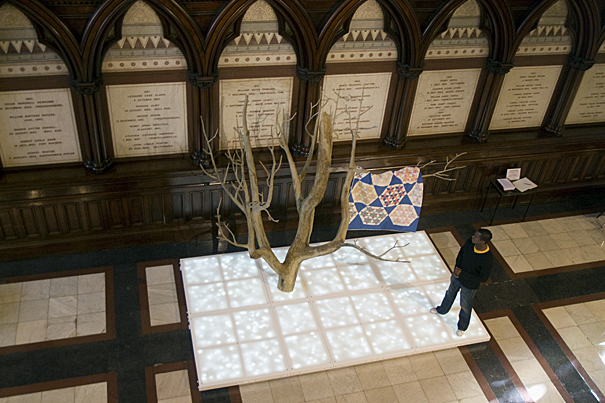
-
Social security
Harvard authors who met years ago through social networking produce the book “Connected: The Surprising Power of Our Social Networks and How They Shape Our Lives.”
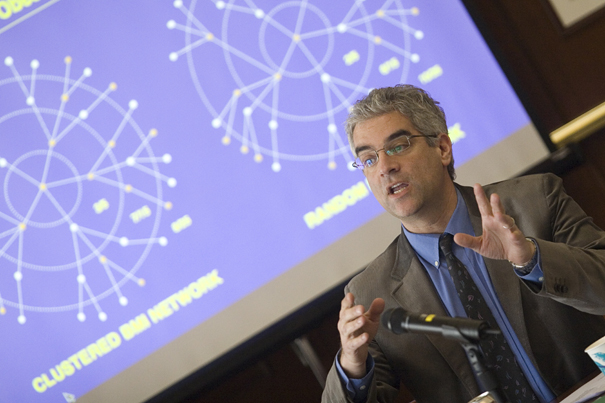
-
An ode to life
Musician Fred Ho’s new work, a commission from Harvard’s Office for the Arts and the Harvard Jazz Bands, chronicles the composer’s successful three-year battle with cancer.
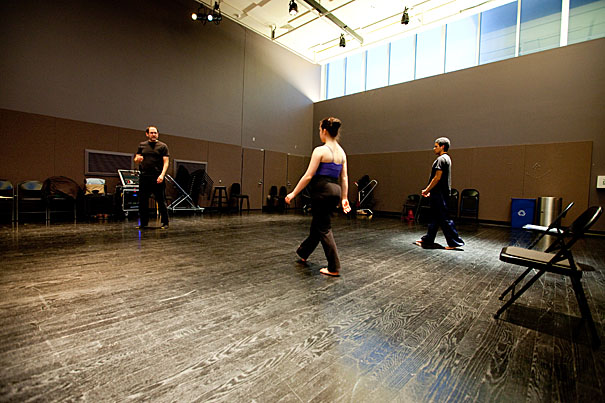
-
Rappaport reading
Nancy Rappaport reads from “In Her Wake,” a book written about the exploration of her mother’s suicide.
-
Arts at center stage
While Harvard the institution is picking up the pace on supporting the arts, Harvard the students — as ever — are busy making the arts their “irreplaceable instruments of knowledge.”
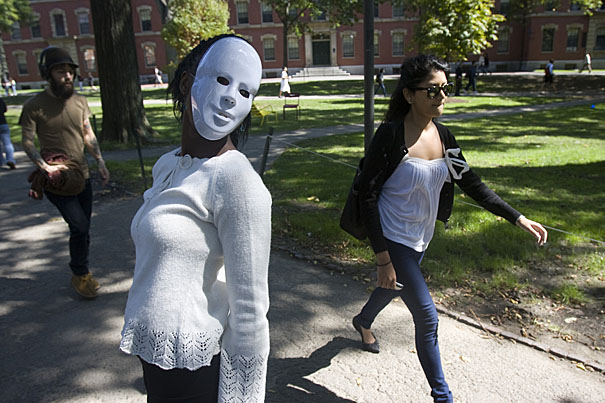
-
Sing sacred, and hide the flute
A timeline of the arts at Harvard begins in 1636, when Harvard was founded, the Massachusetts Bay Colony had barely 10,000 settlers, and wolves howled at the edge of the endless forests.
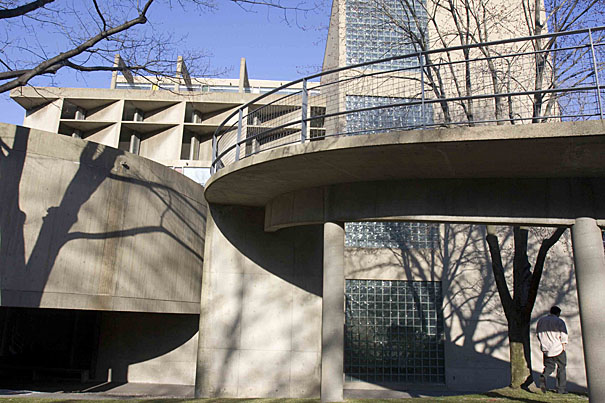
-
“Street Scene” in the Yard
“Street Scene” is performed in Harvard Yard by a group of A.R.T. students.
-
The Lab experiment
The Lab, a three-year experiment orchestrated by David Edwards, Gordon McKay Professor of the Practice of Biomedical Engineering, offers a “forum to help catalyze ideas” across many fields. Stemming from his course “Idea Translation” (ES 147), the exhibition of student-based experiments is designed to morph into an ongoing series of events and “idea nights” open to anyone at Harvard with something to show or say.
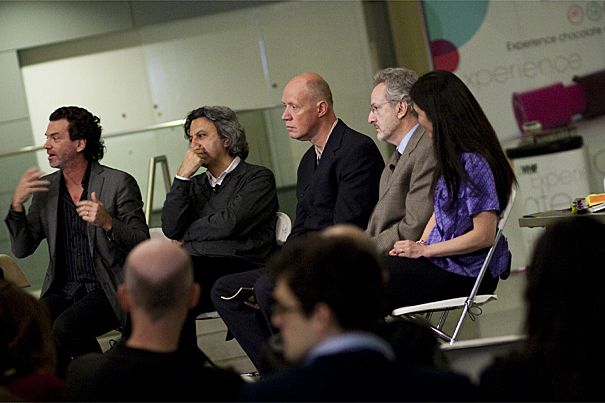
-
Irony and identity
Philosopher and classicist Jonathan Lear, this year’s Tanner lecturer, begins his two-lecture look at irony and identity.
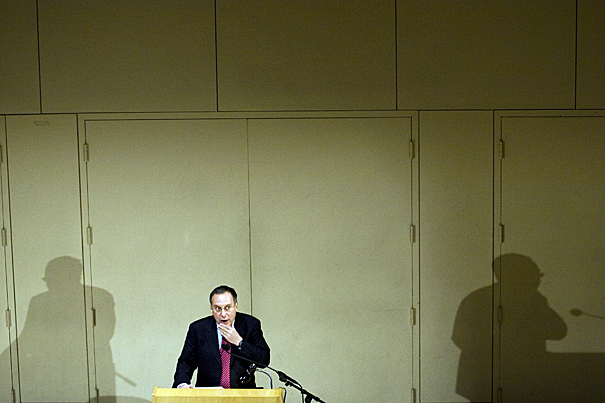
-
Treasures unearthed
Students display results from a semester-long dig in Harvard Yard, including a musket ball, a slate pencil, and a piece of print type with the letter “o.”
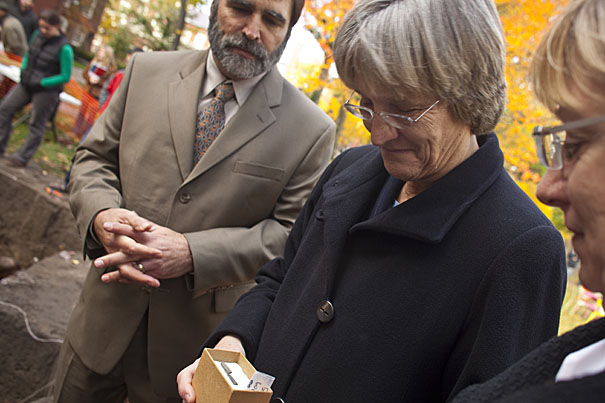
-
Ecologies of value
Radcliffe Fellow and anthropologist Heather Paxson is studying small artisanal cheese operations as “ecologies of production” that are both commercial and moral.
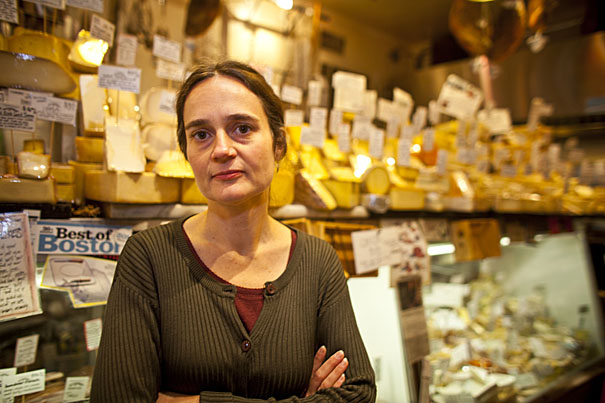
-
Up Close, part 3
In the fast pace of our daily lives we may overlook the details that, collectively, create a stunning backdrop for all that happens within the University. See the inner workings of Harvard’s pianos up close, while enjoying a melodic feast for the ears.
-
The People Factor: Strengthening America by Investing in Public Service
Who says the government doesn’t need to work better? After Hurricane Katrina, intelligence failures, and security lapses, Bilmes and Gould argue that hiring a capable federal workforce is central to serving the nation properly.
-
Empire of Texts in Motion: Chinese, Korean, and Taiwanese Transculturations of Japanese Literature
Thornber whisks us to Asia at the turn of the 20th century, where she documents how Japan’s literature interacted with China, Korea, and Taiwan, thus challenging Japan’s cultural authority.
-
Instructional Rounds in Education: A Network Approach to Improving Teaching and Learning
A new teaching model inspired by medical rounds performed by physicians? Check. These authors dissect education and offer up their pioneering and pain-free prescription.
-
Big voice, big heart
The Memorial Church welcomed opera virtuoso Dominique Labelle last week, who was described as genuine and gracious during her master class, proving that divas can be divas without diva behavior.
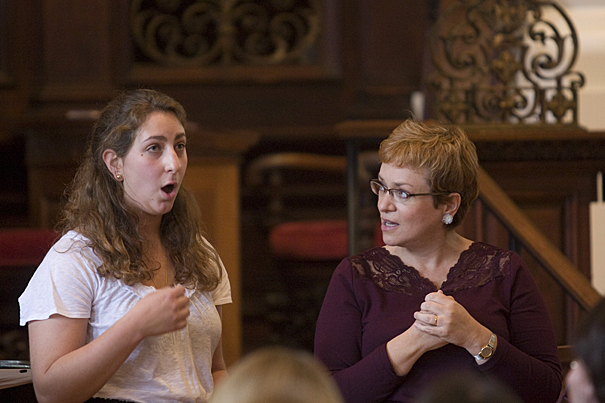
-
Painting pictures in our minds
Nobel laureate in literature Orhan Pamuk nears the end of his six-lecture Norton series on the novel’s durable attractions.
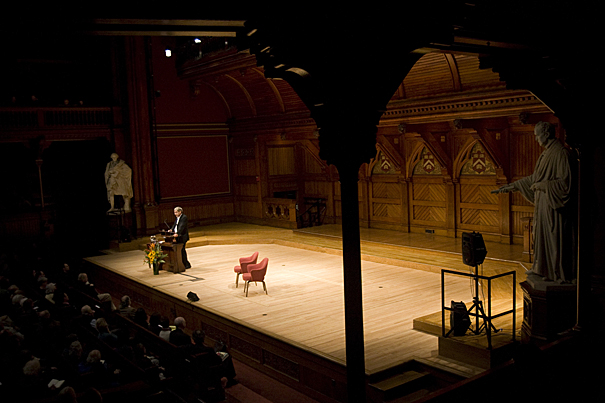
-
Deep into indigo
Cellist Yo-Yo Ma examines the educational value of indigo through a number of disciplines.
